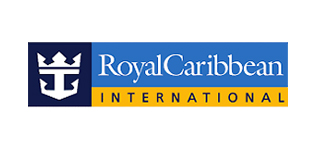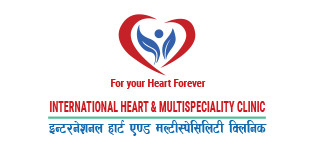What is a prenatal screening test and why is it required?
- 2023-03-23
Prenatal screening tests can identify
whether your baby is more or less likely to have certain birth defects, many of
which are genetic disorders
A
Prenatal Screening test is a non-invasive biochemical test, a specific type of
ultrasound and prenatal cell-free DNA screening test which is recommended
during the first – second trimesters of pregnancy to determine if the growing
baby is at an increased risk of having a genetic condition Such tests screen
certain specific proteins and hormones released during pregnancy whose abnormal
levels coupled with the age, weight; ethnicity, pre-existing diseases and type
of pregnancy (singleton, multiple) of the expecting mother determine the
combined risk of such conditions in the foetus.
TRADITIONAL MATERNAL MARKER TEST
The maternal marker is a non-invasive
biochemical test, there are different Marker Tests which are recommended at
different time points in the pregnancy.
Double Marker Test Book Now
A Double Marker Test is a prenatal
screening test done to determine the healthy development of the foetus. This
test is combined with an ultrasound test and blood sample from the expecting
mother. This test measures the levels of free Beta-hCG and Pregnancy Associated
Plasma Protein (PAPP-A) in the blood.
- Recommended during It can be done from 9 to 13
weeks of pregnancy but the ideal time for combined risk assessment is 10
to 13 weeks.
- Beta-hCG is a glycoprotein hormone produced by
the placenta during pregnancy. High levels of this hormone are indicative
of a higher risk of Trisomy 18 (Edward Syndrome) and Trisomy 21 (Down
syndrome) in the foetus.
- PAPP A is a vital plasma protein. A low level of
this plasma protein before the 14th week of gestation is
indicative of an increased risk of Down syndrome.
- The NT (Nuchal Translucency), an ultrasound marker
is important component for combined trisomy 21 risk assessment.
First Trimester Quad Screen with Nuchal Translucency and Preeclampsia by Auto Delfia Book Now
Alpha Feto Protein (AFP) (Maternal), Free
Beta -hCG, PAPP – A, Placental Growth Factor (PLGF). This test is done between 9 and 13 Weeks 6
Days of pregnancy. However, the best time for this test is between 11 and 13
weeks of pregnancy.
Triple Marker Test
A Triple Marker Test is a prenatal
screening test to identify a risk of genetic disorders in the developing
baby. This test measures the levels of three marker AFP, Unconjugated
Estriol, β -HCG in blood, it is
known as the Triple Marker test.
- Recommended between 15-20 weeks of gestation.
- AFP is a protein which is produced by the
fetus. If the levels of AFP are high, it indicates neural tube defects in
the fetus or there can be incomplete closure of the fetus abdomen.
- HCG hormone is produced by cells of the placenta. If
the levels of HCG are low, it indicates a miscarriage or ectopic
pregnancy. Whereas, if the levels of HCG are high this indicates multiple
pregnancies.
- Estriol is a form of the hormone estrogen which is
present in both fetus and placenta. If the levels of estriol are low, it
indicates the risk of the baby getting delivered with Down syndrome
especially when the levels of AFP are low and HCG are high.
Quadruple Marker Test
The Quadruple Marker Screening Test or Quad
Test for pregnant women as this test to classify a patient as either high-risk
or low-risk for chromosomal abnormalities (Down Syndrome-Trisomy 21, Edward’s
Syndrome-Trisomy 18) and neural tube defects. The Quad screen looks at the
three markers measured in the triple screen (Alpha-fetoprotein, Human Chorionic
Gonadotropin, and Estriol) test plus one additional marker, Inhibin A.
This test is done between 14 and 22 weeks
of pregnancy. However, the best time for this test is between 15 and 20 weeks
of pregnancy.
- Inhibin A is a hormone which is produced by the placenta.
It is a dimer which means it has two parts. It is also sometimes referred
to as DIA or dimeric inhibin A. In the 14 to 17 weeks of gestation
(pregnancy), the levels of inhibin A in maternal blood slightly decrease
and then rise again. Increased levels of Inhibin A indicate fetus with
Down syndrome. Inhibin A enhances the sensitivity as well as the
specificity in order to correctly identify cases of Down syndrome.
NON-INVASIVE PRE-NATAL TEST
Most advanced Non-Invasive Pre-Natal Test
(NIPT) is capable of genome-wide aneuploidy detection of the whole fetal genome
(23 pairs of chromosomes). Test results with the interpretation of risk for
Trisomy 13 Trisomy 18, Trisomy 21, and sex chromosome aneuplodies will be
provided.
During the pregnancy, fetal cell-free DNA
(cfDNA) circulates in the maternal blood which can be used for fetal aneuploidy
analysis. Non-Invasive Prenatal Testing is a simple, risk-free and an accurate
prenatal genetic test that can analyze the baby’s DNA to detect the risk for
any genetic conditions which can help the couple make informed pregnancy
decisions.
·
Safe - No risks of miscarriages and only
maternal blood needed for testing
·
Can be used as early as 9 weeks of
gestation
·
Validated and recommended by International
Society of Prenatal Diagnosis
·
The test is accurate even at fetal
fractions as low as 4%
·
Sensitivity & Specificity >99%
Who should consider NIPT?
As per medical societies, NIPT should be
the first line of testing for all pregnancies irrespective of maternal
age. It is recommended for the following conditions:
·
Positive Maternal Serum Marker reports
·
Advanced Maternal Age (>30 years)
·
Family history of chromosomal abnormalities
·
or previous child with a genetic
abnormality
·
History of Recurrent pregnancy loss or
infertility
What should you do if you have a positive
screen result?
The Marker Tests are screening tests. and
are not confirmatory of a possible genetic condition affecting the baby. The
result is recommended for further testing for confirmation of the same. The
mother may be offered the choice to undergo an invasive procedure such as a
Chorionic villus sampling (CVS) from 11-13 weeks or an Amniocentesis from 15
weeks onwards along with targeted genetic testing like Karyotype or
Fluorescence in situ Hybridisation (FISH). Invasive procedures carry a small
risk of miscarriages (1-2%).
Confused about what tests to take at what intervals to screen for your cervical health? Call or WhatsApp 980103680/9801831090
Medically Reviewed by
Dr. Ramendra Kumar Raman, PhD, Clinical Research



























Leave Comment